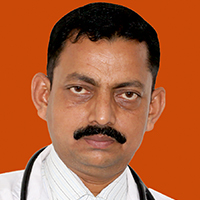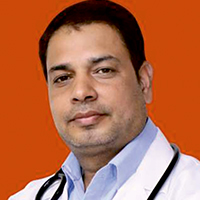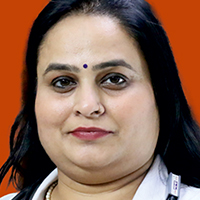

Successful Treatments
Clinics
Doctors
What is Oligospermia?
Oligospermia or low sperm count is a condition where a male's semen has less sperm count compared to normal levels of sperm count. This translates to under 15 million sperm per millilitre of sperm. This makes it difficult for couples to naturally conceive since there is less sperm to fertilise an egg.
Men who have Oligospermia might not realise they have it until they face difficulties having a child. It's one of the most common reasons for male infertility, which is usually found during fertility tests when a couple can not conceive after having regular, unprotected sexual intercourse over a long time.
Several factors, including hereditary factors, lifestyle choices such as excessive alcohol consumption or smoking, environmental toxins and certain medical treatments or infections may contribute to Oligospermia. Heat exposure to the testicles (such as frequent use of a hot tub or saunas) may also temporarily lower the sperm count.
Common Causes of Oligospermia
Oligospermia may be associated with factors that are related to health, lifestyle or even the environment. All men should be aware of such factors as they can impact fertility. Identifying and addressing these causes with an Ayurvedic expert might help increase sperm count and fertility.
Oligospermia is most commonly caused by:
Genetic Factors: Some men inherit genetic conditions that affect sperm production. Disorders like Klinefelter's syndrome or genetic mutations may cause less sperm production.
Medical Conditions: The production of normal sperm by the body can be constrained by conditions such as diabetes, mumps, sexually transmitted diseases and hormonal imbalances.
Surgical History: Surgeries on reproductive organs like vasectomy reversals or surgeries for undescended testicles may also lower sperm count.
Environment Toxins: Chemical and heavy metal exposure, for example lead, arsenic, or mercury may interfere with sperm production. Pesticides and radiation also pose major risks.
Lifestyle Choices: Smoking cigarettes, drinking excessive alcohol or taking illegal drugs including cocaine or marijuana can lower sperm count. Anabolic steroids, used in bodybuilding, may also impair sperm production.
Heat Exposure: Prolonged exposure to heat in a sauna or hot tub may raise testicle temperature and affect sperm production. This condition may result even with tight clothing or prolonged laptop use on the lap.
Stress and Obesity: High stress and obesity may lower hormone levels and sperm production.
Signs and Symptoms of Oligospermia
Oligospermia itself often has no apparent symptoms but knowing the potential signs may reveal underlying problems related to low sperm count. Recognising these signs may help with timely medical advice, especially when planning a family.
Symptoms
Difficulty Conceiving
The most common sign of Oligospermia is difficulty in conception. Couples who have tried for over a year without success might be experiencing low sperm count.
Sexual Dysfunction
Erectile dysfunction or reduced libido are other signs of Oligospermia. These signs don't always suggest low sperm count but could be associated with hormonal imbalances or other reproductive problems.
Pain, Swelling or Lumps in the Testicle Area
Any discomfort, swelling or palpable lumps around the testicles could also indicate infections or conditions that affect sperm production.
Decreased Facial or Body Hair
Less hair growth may mean hormonal problems which may also affect sperm production. This is especially important if the change is sudden or fast.
Fatigue or Lack of Stamina
Fatigue may occur for a variety of reasons but in combination with other signs, it may indicate Oligospermia related hormonal problems.
Ejaculation changes
Changes in volume or consistency of ejaculation are another symptom of Oligospermia. A reduced seminal volume may reflect a problem with sperm production or other reproductive health problems.
Do you have any of the following symptoms?
- Difficulty conceiving a child after one year of intercourse
- Erectile dysfunction or reduced sexual desire
- Pain, swelling, or lumps in the testicle area
- Decreased facial or body hair growth
- Persistent fatigue or lack of stamina
- Changes in the volume or consistency of ejaculation
- Visible signs of hormonal imbalance
Jiva Ayunique™ Treatment Philosophy - A Holistic Approach to Oligospermia
Jiva Ayurveda offers holistic Oligospermia treatment using evidence-based Ayurveda. The treatment plans are customised to target the very root causes of the disease, and instead of just treating symptoms, they focus on holistic healing, balance and stability in totality.
Core Principles of the Jiva Ayunique™ Treatment Philosophy
HACCP certified Ayurvedic medicines: These are scientifically-developed blends that help rebalance your body’s energies and promote emotional balance.
Yoga, Meditation & Mindfulness: These calming practices support mental health and overall wellness.
Ayurvedic Treatments: Techniques like Panchakarma and therapeutic massages detoxify the body and create emotional equilibrium.
Diet and Lifestyle Changes: Expert advice on changing eating habits and lifestyle choices for improved health outcomes.
Ayurvedic Medicines for Oligospermia
Ayurvedic medicines include natural herbs that are known to help address Oligospermia by improving the quantity and quality of sperm.
The following are some known Ayurvedic herbs for controlling Oligospermia:
Shatavari (Asparagus racemosus): Shatavari is also called the "Queen of Herbs," and is thought to balance hormones and improve semen quality.
Gokshura (Tribulus terrestris): Gokshura is helpful in erectile function and sexual health. It increases sperm count and libido by increasing testosterone production.
Safed Musli (Chlorophytum borivilianum): This herb is believed to strengthen the reproductive system, boost sperm motility and volume that can help manage Oligospermia.
Ashwagandha (Withania somnifera): This is a potent herb that reduces stress and increases vitality, which may boost sperm production. Ashwagandha is believed to increase motility and sperm count and is extensively used in Oligospermia treatment.
Kaunch Beej (Mucuna pruriens): Kaunch beej may increase sperm count and motility. It also lowers stress and anxiety, which negatively affect sperm production.
Vidarikand (Pueraria tuberosa): This herb is thought to help in the production of healthy semen and increase its consistency and volume.
Kapikacchu (Mucuna pruriens): Like Kaunch beej (sometimes called by the same name), it helps relieve stress and improves sperm quality and count.
Jeevanti (Leptadenia reticulata): Jeevanti increases vitality and stamina which are important for sexual health and sperm production.
Frequently Asked Questions About Oligospermia
What is the ideal sperm count for conception?
A sperm count of more than 15 million sperm per millilitre of semen is considered normal for conception.
Can lifestyle changes improve Oligospermia?
Yes, lifestyle changes such as reducing stress, giving up smoking, restricting alcohol intake and maintaining a healthy weight can boost sperm count.
How long will it take to notice improvement in sperm count using Ayurvedic therapy?
Improvements are generally seen after 3 to 6 months of consistent Ayurvedic treatment, as per individual health condition.
Is Ayurvedic treatment of Oligospermia safe?
Yes, if administered properly by a competent Ayurvedic practitioner, they're generally safe and without unwanted side effects.
Can Ayurveda help with severe Oligospermia?
Yes, Ayurvedic treatments can help in severe Oligospermia cases with consistent treatment and therapies.
What Ayurvedic diet is recommended for increasing sperm count?
Fresh vegetables, fruits, whole grains, dairy products and nuts are suggested for improving sperm health.
Does stress affect sperm count?
High stress may negatively affect hormone levels and sperm production; therefore stress management is important.
Are there particular yoga poses for Oligospermia?
Yes, yoga poses like Agnistambhasana (Fire Log Pose) and Dhanurasana (Bow Pose) promote pelvic blood flow and reproductive health.
How can being overweight affect sperm count?
Obesity causes hormonal imbalances and increased heat around the testicles that can impair sperm production.
What risks are associated with untreated Oligospermia?
The main risk for untreated Oligospermia is persistent infertility or difficulty in natural conception.
Does regular exercise help with Oligospermia?
Yes, moderate exercise improves circulation and hormone balance and may enhance sperm production.
Top Ayurveda Doctors
Our Happy Patients
Home Remedies
Related Disease
- Ayurvedic Treatment for HIV AIDS
- Ayurvedic Treatment for Erectile Dysfunction
- Ayurvedic Treatment for Frigidity
- Ayurvedic Treatment for Oligospermia
- Ayurvedic Treatment for Premature Ejaculation
- Ayurvedic Treatment for Syphilis
- Ayurvedic Treatment for Trichomoniasis
- Ayurvedic Treatment for Epididymitis
- Ayurvedic Treatment for Chlamydia
- Ayurvedic Treatment for Gonorrhea
- Ayurvedic Treatment for Low AMH
- Azoospermia Treatment in Ayurveda
Latest Blogs
- 100 दिनों में Diabetes Reverse! Ayurveda ने कैसे 8.5 से 5.5 तक गिराया HbA1c
- सालों पुराने Knee Pain में Painkillers भी हार गए—Ayurveda ने कैसे दिलाया सच्चा आराम
- 74 साल की उम्र में भी Osteoporosis Pain से मिली राहत—Ayurveda ने कैसे बदली ज़िंदगी
- जब चलना मुश्किल हो जाए और डॉक्टर Operation कहें—Jivagram का Ayurveda कैसे बदल देता है ज़िंदगी
- Arthritis ने 15 साल जीवन रोक दिया था—Ayurveda ने कैसे फिर से चलने की उम्मीद जगाई
- 67 की उम्र में भी घुटनों का ऑपरेशन टला—Ayurveda ने कैसे फिर से चलने की ताकत दी?
- 6 साल लंबी Infertility की लड़ाई और हर उम्मीद टूट चुकी थी—आयुर्वेद ने कैसे दिखाई नई रोशनी?
- 10 साल पुराने घुटने और हाथ के दर्द से मिली राहत: जानिए कैसे आयुर्वेद ने फिर से चलने-फिरने की ताकत दी
- क्या वैरिकोज़ वेन्स और DVT एक-दूसरे से जुड़े हैं? आयुर्वेद बताता है असली फर्क
- क्या त्वचा पर कुछ हिस्सों का अचानक रंग हल्का होने लगना Hypopigmentation है या Vitiligo? आयुर्वेदिक भेद समझें
- क्या धब्बों के आसपास खुजली या हल्की जलन Vitiligo flare का संकेत है? आयुर्वेदिक दृष्टि से समझें
- क्या रसायनिक उत्पाद, रंग-बिरंगे क्रीम या फ्रेगरेंस त्वचा पर दाग बढ़ा सकते हैं? Vitiligo में त्वचा-संवेदनशीलता आयुर्वेद से जानें
- क्या परिवार में पहले से Vitiligo होने पर बच्चों में इसका खतरा बढ़ जाता है? आयुर्वेदिक कारण समझें
- क्या तनाव बढ़ते ही सफ़ेद दाग फैलने लगते हैं? Vitiligo में मन-त्वचा संबंध आयुर्वेद की नज़र से जानें
- क्या बार-बार पेट संबंधी समस्याएँ—गैस, अपच, कब्ज़—Vitiligo को ट्रिगर करती हैं? आयुर्वेदिक व्याख्या देखें
- क्या धूप में जाने पर सफ़ेद दाग और ज़्यादा साफ़ दिखने लगते हैं? Vitiligo को आयुर्वेद की नज़र से जानें
- क्या त्वचा पर छोटे-छोटे सफ़ेद धब्बे उभरना Vitiligo का शुरुआती संकेत है? आयुर्वेदिक दृष्टि से समझें
- क्या सोरायसिस में त्वचा के साथ-साथ जोड़ों में दर्द (Psoriatic Arthritis) भी शुरू हो सकता है? आयुर्वेदिक दृष्टि से संकेत देखें
- क्या बार-बार स्टेरॉइड क्रीम लगाए बिना राहत नहीं मिलती? Psoriasis में मूल कारण कैसे समझता है आयुर्वेद—जानें
- क्या गर्मी और मसालेदार भोजन आपके Psoriasis को तुरंत flare-up करते हैं? आयुर्वेदिक कारण जानें
Ayurvedic Doctor In Top Cities
- Ayurvedic Doctors in Bangalore
- Ayurvedic Doctors in Pune
- Ayurvedic Doctors in Delhi
- Ayurvedic Doctors in Hyderabad
- Ayurvedic Doctors in Indore
- Ayurvedic Doctors in Mumbai
- Ayurvedic Doctors in Lucknow
- Ayurvedic Doctors in Kolkata
- Ayurvedic Doctors in Patna
- Ayurvedic Doctors in Vadodara
- Ayurvedic Doctors in Ahmedabad
- Ayurvedic Doctors in Chandigarh
- Ayurvedic Doctors in Gurugaon
- Ayurvedic Doctors in Jaipur
- Ayurvedic Doctors in Kanpur
- Ayurvedic Doctors in Noida
- Ayurvedic Doctors in Ranchi
- Ayurvedic Doctors in Bhopal
- Ayurvedic Doctors in Ludhiana
- Ayurvedic Doctors in Dehradun




































